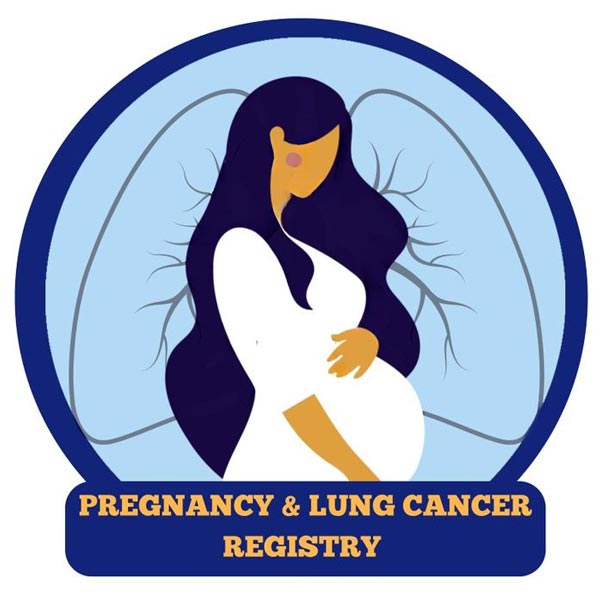Little data exists to guide physicians on how to proceed when a pregnant patient receives a lung cancer diagnosis. Though comprehensive research on the efficacy and safety of lung cancer treatment in pregnant women is lacking, the need for such knowledge is great—and growing.

Narjust Florez, MD, who is Associate Director of the Cancer Care Equity Program and a thoracic medical oncologist at the Dana-Farber Cancer Institute, Boston, learned this first-hand—and hopes to change it.
Dr. Florez, who is also Assistant Professor of Medicine at Harvard Medical School, recounts the time a colleague turned to her for help. A 32-year-old patient had been diagnosed with metastatic lung cancer. She was 28 weeks pregnant.
“After many phone calls, emails, and follow-ups with the high-risk obstetrics department, we planned to continue the pregnancy and began chemotherapy,” she said. “Six weeks later, a healthy 7-pound baby was born. Breathing a sigh of relief, I ran to the delivery room with a bottle of alectinib.”
However, once there, Dr. Florez only faced more complex questions; many without answers. For instance:
- What is the tolerability of targeted therapy after delivery?
- What are the recommendations for lactation while taking a tyrosine kinase inhibitor (TKI)?
- How do you respond when the patient asks if they will live to see their child’s first day of kindergarten? Or if they can have another child in the future? Do we even know likely answers to these questions?
Questions such as these have catapulted Dr. Florez and her team at the Florez Laboratory to begin a new investigation of pregnancy and lung cancer.
A year later, the mother continues to do well on targeted therapy and the baby is nearing the age-expected growth percentile, Dr. Florez said.
“However, this is not always the case, and further understanding of pregnancy and lung cancer is needed,” she said.
As part of the effort, the Florez Lab has launched the first international registry designed to collect data on pregnancy and lung cancer.
“As the maternal age of first pregnancy has increased, the incidence of cancer during pregnancy has also increased,” Dr. Florez said. “Lung cancer is the leading cause of cancer death for women in the US, and for the first time, the incidence of lung cancer is increasing faster in young women compared to young men.”
Unfortunately, only 66 cases of pregnant patients with lung cancer have been reported in the literature. Given the ethical and clinical implications for patients and their physicians in these situations, Dr. Florez said she hopes that clinicians worldwide will contribute cases to the registry to expand the knowledge base.
“Knowledge about lung cancer treatment effects during pregnancy has mainly come from research conducted prior to the approval of targeted therapy and immune checkpoint inhibitors or from data extrapolated from patients with breast cancer, limiting generalizability,” she said. “Research in lung cancer is needed to assess immediate and long-term outcomes. This may include assessments related to therapeutic safety, dosing, and effectiveness during pregnancy and lactation, as opposed to extrapolating data from hormonal dependent cancers with different clinicopathological characteristics.”

Dr. Florez is asking healthcare providers who have diagnosed or treated a pregnant patient with lung cancer to enroll in the registry. She said entering a case takes about 20 minutes and all data collected will be kept confidential and be de-identified.
Data collected will provide insight into diagnostic timelines, therapies used throughout pregnancy, their dosing, tolerability, and effectiveness, as well as pregnancy and delivery complications. Follow-up forms administered 6 and 12 months later will inquire about the patient’s cancer progression, subsequent treatment tolerability, hospitalizations necessitated, complications conferred to the mother and child, and assessments regarding menstrual cycles and fertility. Dr. Florez and her team aim to publish a summary and updates of the data at six-month intervals.
Until such data has been collected, though, Dr. Florez and colleagues have developed some recommendations for healthcare providers treating lung cancer during pregnancy:
- Staging is more safely performed using PET-MRs, which has lower radiation risk and can provide accurate information.
- Biomarker testing is essential due to the high rates of target mutations in younger women. Tissue testing is the gold standard, as data is lacking on liquid biopsies when fetal DNA may be circulating in the mother’s bloodstream.
- Having a risks-versus-benefits discussion with the patient, alongside a high-risk pregnancy obstetrics specialist, is critical to balance the mother’s health against the viability of the fetus.
- Many chemotherapies can be safely administered during the second and third trimesters. However, minimal data about the safety of TKIs or immune checkpoint inhibitors exist.
- Early incorporation of palliative care is recommended, as well as the creation of a multidisciplinary team, including social workers, mental health professionals, perinatology, and high-risk obstetrics specialists.
For more information or to enroll in the registry, contact the Florez Lab at [email protected].




